StudyPH Program - Education Tourism
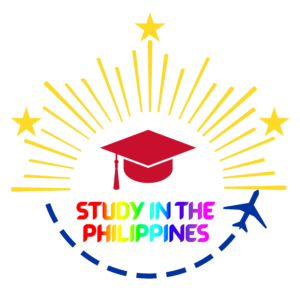
The Study in the Philippines (StudyPH) Program is a CHED initiative with main thrust to position the Philippines as a regional and global education hub while providing opportunities for internationalization-at-home for local citizens. In addition, the Program aims to support projects intending to implement activities within selected priority zones that will primarily increase the number of international learners in the Philippines, whether mobility is tangible or virtual. This intention will be achieved by: (1) enhancing institutional capacities and linkages towards efficient and effective delivery of glocal learning; and, (2) improving infrastructure in support of globally competitive education delivery, knowledge generation, and innovation.
2019 Funded Projects
The Study PH Program has provided grants to four (4) State Universities and Colleges (SUCs) which includes the Bulacan State University, Iloilo State College of Fisheries (ISCOF), University of Antique, and University of the Philippines Baguio in 2019.
Sustainable Heritage Imbibing Nationalism through Education in Bulacan #SHINEBulacan
#SHINEBulacan Project seeks to increase awareness, appreciation and imbibe the spirit of Nationalism through Education and promotion of sustainable heritage. It is a continuing collaboration project of Bulacan State University (BulSU) with the Provincial History Arts Culture and Tourism Office (PHACTO) -Bulacan. Project components consists of:
1. Establishment of Bulacan Cultural Material Laboratory,
2. Conferences,
3. Infrastructure,
4. Exhibit, and
5. Events
Fisheries and Marine Science Museum and Laguerta De ISCOF Animalville: A Sustainable Agri-Fishery Tourism
The proposed project will be the first school-based Eco farm in the Province of Iloilo. The farm will be offering virtual and interactive activities. The main objective of the project is to develop and propagate a sustainable educational approach to milkfish farming and processing to meet the needs of individual students through flexible, accessible, and innovative baccalaureate, graduate programs and life-long learning.
JUAN-A GO TOURISM PROGRAM
The Juan-a Go Tourism Program is a 3-year Edutourism project that primarily aims to develop a multi-disciplinary Edutourism hub that will serve as a knowledge and tourism service center. This project seeks to promote and maximize tourism potentials particularly in the province of Antique. This project aims to develop website and mobile apps that will integrate functionalities necessary to provide vast options of tourism exploration alternative and ensure ease of doing tourism activities. Program components:
1. Juan-a Go App;
2. Ruta ni Juan, or Juan’s Journey;
3. Balay ni Juan, or Juan’s House;
4. Serbisyo ni Juan, or Juan’s Services
Museum Management Training for HEIs: Transforming University Museums as Sites of Cultural Education and Creativity Tourism Destinations
This project aims to gather educators and HEIs leaders to enable and enhance knowledge projected through the museums. The program will also provide technical assistance to improve the SUC museums to become centers for cultural learning and as tourist destinations.
2020 Funded Projects
In its second year, the StudyPH Program expanded its reach enabling continuation of existing projects and creation of new ones. The project proposals of the 2020 proponents are categorized into the following priority themes:
- Culture, Heritage, and Museums (CHM)– preservation and appreciation of participants and products of Philippine civilization;
- Agriculture, Forestry, and Fishery (AFF)– promotion and development of the tourism potential of economic activities; and,
- Environment and Natural Resources (ENR) – conservation and restoration of ecological systems.
2nd Sustainable Heritage Imbibing Nationalism through Education in Bulacan #SHINEBulacan
Seeks to increase awareness, appreciation, and imbibe the spirit of Nationalism to our youth today through Education and promotion of sustainable heritage. It is a continuing collaboration project of the Bulacan State University with the Provincial Government of Bulacan.
The project consists of various activities embracing Extension Projects, Research-Based ventures as well as Academic development dedicated to the promotion, conservation, and protection of Cultural Heritage. The project shall involve fully digitalized community development initiatives, research, online training, data banking, tourism site development and field works
RISE Capiz: Riverine Improvement towards a Sustainable Ecotourism in Roxas City, Capiz, Philippines
This Research and Development project will be implemented in the riverine barangays of Roxas City, Capiz, Philippines which have the existing river tour sites.
The establishment of the demo farms will also be open as tourist spots and included in the River Tour routes. Training on post-harvest / processing and marketing will also be conducted. Partnership with other agencies like CHED, DOST, DA, DTI and other related entrepreneur agencies will be encouraged and undertaken.
eFARM (Food and Agriculture Resources Management) Academy
FARM targets to do the Transfer Technology Program, where food and agriculture technology developed by CLSU will be showcased and the products of which will be made available for consumption. They can be shared through on-site visits and/or through virtual classrooms which can reach out to all the target beneficiaries. With the challenges faced by the various industry due to COVID 19, CLSU shall take advantage of the available platforms to create a loop from which local and international students and stakeholders can learn by addressing the needs of the community and disseminate the various technology products through the FARM Institute.
Resource Utilization for TechEd and Community-based Tourism Enhancement in CPSU Reservation Area and Extension Campuses
The project mainly aims to develop the potential of CPSU as Agri-tourism Hub for TechEd and Community-based model through management and utilization of local resources.
Since CPSU has 10 campuses sprawling from different locations including the main campus, the proposed project aimed to enhance and develop the existing facilities for the 10 proposed technopark as edutourism hub via community-based agri-tourism sites in partnership with the farmers and other stakeholders. Each campus will design its edutourism hub unique from other campuses. The following where the proposed edutourism hub for 10 campuses of CPSU.
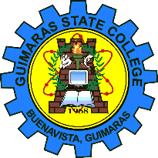 Guimaras 4.0: The Island that Fits Your Taste
Guimaras 4.0: The Island that Fits Your Taste
This project suggests education tourism as an alternative strategy to the mass tourism development efforts. It calls for a coordinated sustained, and organized approach to education tourism to realize its social and economic potential.
Program Components
1. Identification and introduction of new and unique tourism products to expand and diversify the agricultural sector and local products especially mangoes.
2. Development and execution of training program for stakeholders focusing on the technical and managerial aspects of Education Tourism including health and food safety and service standards.
3. Capacity building/training and Transfer of Technology for students, SUCs, LGUs, Provincial Tourism, Tourism industries, and local communities.
4. Immersive Learning and Training Program.
5. Highlight Guimaras Province heritage sites, tradition, culture, culinary arts, and indigenous sports.
6. Further the internationalization efforts of GSC through linkages and exchanges with FHEIs in tourism centric fields
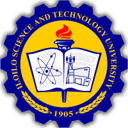 ISAT U Cultural Heritage and Educational Research Center: An Edu-Tourism Project
ISAT U Cultural Heritage and Educational Research Center: An Edu-Tourism Project
The ISAT U CHERC is envisioned to be a digital literacy center to further supplement classroom instruction and research in history, social sciences, and as well as ICT. It proposes to digitize the archives of books and print collections of the Mejica Repository which has been a part and parcel of the very first Ilonggo Printing Press – the Makinaugalingon Printing Press.
The main objective is to develop and propagate a sustainable educational approach to Milkfish Farming and processing to meet the needs of individual students through flexible, accessible, and innovative baccalaureate and graduate programs.
 MILKFISH FARMING and PROCESSING: ISCOF’s Niche for Redefining Internationalization Endeavors
MILKFISH FARMING and PROCESSING: ISCOF’s Niche for Redefining Internationalization Endeavors
The main objective is to develop and propagate a sustainable educational approach to Milkfish Farming and processing to meet the needs of individual students through flexible, accessible, and innovative baccalaureate and graduate programs.
This project is meant to upgrade equipment, immersion facilities, and laboratories of fisheries and information technology for a virtual mode of delivery as an alternative to sustain activities and by using new ways to interact with the environment, institutional players, scientists, local stakeholders, fisherfolks and women.
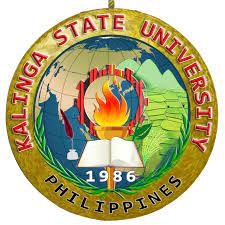 Establishment of A Campus-based Kalinga Cultural Heritage Studies and Edu-Tourism Center
Establishment of A Campus-based Kalinga Cultural Heritage Studies and Edu-Tourism Center
In pursuit of its goal to establish a reputation as a Center for Indigenous Studies, Kalinga State University deemed it necessary to establish a Campus-based Kalinga Indigenous Studies Center to serve as a School of Living Traditions and Edu-tourism Center to institutionalize learning venues/centers for the perpetuation and promotion of Indigenous Kalinga People’s culture and provide experiential learning for participants of the Study PH Program.
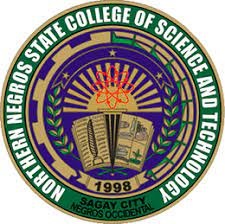 Establishment of A Campus-based
Establishment of A Campus-based
Kalinga Cultural Heritage Studies and Edu-Tourism Center
The project generally aims to:
- increase the number of international research linkages for NONESCOST by promoting Sagay Marine Reserve as the target site for taxonomic research for mangrove taxonomy, coral reef management, and other topics on associated fauna including shellfish, seagrass, and birds;
- incorporate ecological management and ecotourism education in the curriculum and educate stakeholders (students, faculty, community partners, etc.) through trainings and seminars, with SMR as the site for application of ecological management methods;
- produce and digitize resource materials facilitate online learning for both local and international learners/tourists and;
- capacitate ecopark managers and guides, policy-making, calibration, and streamlining of methods, guidelines, and regulations in the ecotourism scheme and delegation of management roles between LGU, academic, and community stakeholders.
Development and Promotion of Sustainable Agri-Tourism in NONESCOST
This project aims to establish a comprehensive and sustainable agri-tourism program in congruence with its mandate to provide instruction and training in science, forestry, fishery, agriculture, engineering, and industrial fields.
The proposed agri-tourism program will not only be able to establish cohesion between all of NONESCOST’s existing research and extension programs but also promote agri-tourism as a research-based product of a larger portion of the school’s endeavor.
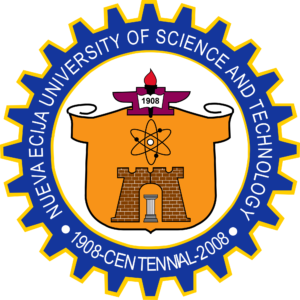 Development of NEUST Virtual Reality Platform for EduTourism
Development of NEUST Virtual Reality Platform for EduTourism
This project focuses on promoting NEUST-Gabaldon as a center for agricultural and ecological educational tourism through the development of a virtual reality edutourism experience.
Specifically, it aims to:
• develop, implement, and promote an alternative system for agricultural and ecological educational tourism through virtual reality learning experiences,
• highlight institution’s agricultural technological innovations and the locale’s natural and man-made attractions and key cultural resources through virtual reality platform,
• develop and implement virtual reality learning and training programs and lifelong education programs for local and foreign edutourists,
• integrate global learning into educational tourism products and services, and
• intensify home-border internationalization efforts of the institution by strengthening partnership and linkages with other HEIs and FHEIs
Sustainable Technology Education Tourism Campus- Coastal Zambales (STETC-Coastal Z)
This project seeks to increase awareness, appreciation and imbibe on coastal tourism to our youth of today and promote sustainable education- tourism. This will position PRMSU-Iba Campus as a Sustainable Coastal Edu-tourism hub through the development of a non-immersive virtual reality coasta-edutourism experience.
Specifically, it aims to:
• establish a Digital Instructional delivery platform;
• develop and promote an alternative system for coastal-educational tourism through virtual reality experiences ;
• highlight the institution’s technological innovations and locale’s man-made and natural coastal attractions and key cultural resources of the province through virtual reality platforms;
• incorporate materials and sources from international partners;
Agri Ecotourism Development and Accelerated Promotion of Techno Entrepreneurship in TAU (ADAPT-TAU) Program
This project is TAU’s response as an Educational Innovation in ADAPTing TAU to the New Normal in Agriculture Education, anchored on promoting Philippine education through internationalization of the curriculum, research, and community services.
This project aims to promote glocalized education by promoting global education while considering inclusivity towards local sustainable development. This project banks on the internationalization initiatives to develop a resilient international engagement, to build relevant opportunities for faculty and students towards mobility (virtual while physical cross-border is not yet feasible) and internationalization of higher education, and to redesign the institution’s capability in escalating memberships in alliances and networks.
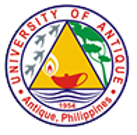 Juan-a Go Tourism Program Phase II
Juan-a Go Tourism Program Phase II
The Juan-a Go Tourism Program is a 3-year edutourism project that primarily aims to develop a multi-disciplinary edutourism hub that will serve as a knowledge and tourism service center. Its main objective is to increase the number of learners in the province of Antique by establishing institutional and international linkages including international HEIs and capabilities towards efficient and effective delivery of learning and improving the infrastructure to support innovations, knowledge generation, and education delivery.
Sipal eskUelA: A Tertiary Sports Tourism Summit Project
This project will dwell on making eco-based sports program as an avenue for the improvement of learning outcomes and establishment of international linkages with the end of attracting foreign students and sports enthusiasts in the University and the province. Eco-based sports are chosen to give a distinct flavor to the activity and educate enthusiasts to protect the environment. Activities include the development of module and an online package of the sports program, the enrichment of the curriculum, refurbishment of the sports center that will host the virtual access of the program, the establishment of linkages and collaborators, and the conduct of training and sports clinic to students, front liners and sports enthusiasts.
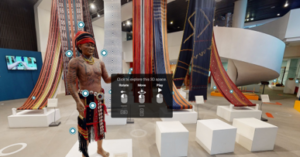 2nd Museum Training for HEIs: Transforming University Museums as Sites for Cultural Education and Creativity Tourism Destinations
2nd Museum Training for HEIs: Transforming University Museums as Sites for Cultural Education and Creativity Tourism Destinations
This project highlights the role of university museums as powerful resource centers for HEIs wishing to maximize the impact of their teaching and research to reach new audiences. Museums provide both students and faculty supplementary learning resources that can reinforce teaching and learning processes.
As such, this project aims to gather educators and HEls leaders to enable and enhance knowledge projected through the museums.
The program will also provide technical assistance to improve the SUC museums to become centers for cultural learning and as a tourist destination.
Tourism Studies on Island-Based Opportunities for Growth (TSIBOG) in Western Visayas
This TSIBOG Program aims to capacitate the LGUs, tourism front liners, businesses, and academic institutions in Western Visayas. This will help in assessing the opportunities and the challenges in the “new normal” tourism in terms of work quality, selected food quality and safety, and cultural heritage in the region.
Bird Sanctuary and Mangrove Park Conservation and Rehabilitation for Instruction, Research, and Tourism
The project generally aims to rehabilitate the Zamboanga State College of Marine Science and Technology (ZSCMST) Bird Sanctuary and Mangrove Park for instruction, research, and tourism purposes.
This project will include the following activities and subprojects:
- Research works on the avifaunal and mangal biodiversity reassessment, food resources of birds, the physicochemical status of the wetland, and threats to conservation;
- Development of Field Laboratory Manual, Research-based Guidebooks, and IEC materials;
- Capacity-building on Biodiversity Conservation and Management of Bird Sanctuaries and Mangrove Parks;
- Digitalization of Resource Materials and Other References such as Guidebooks, Virtual Tours, and Research Works; and,
- Partnership with Local and Foreign HEIs in the same field. In achieving sustainability, partners play a vital role.